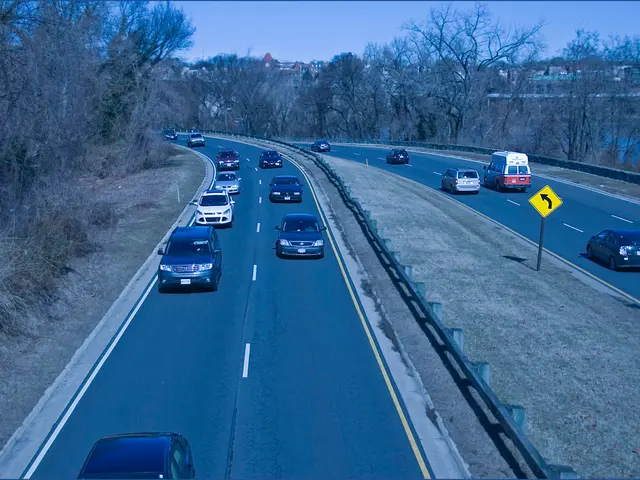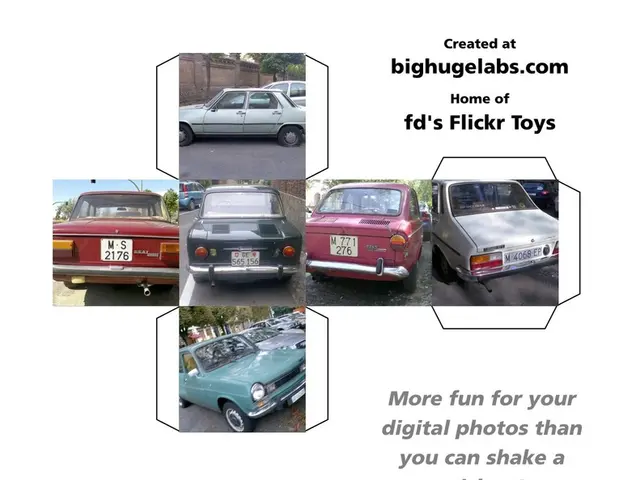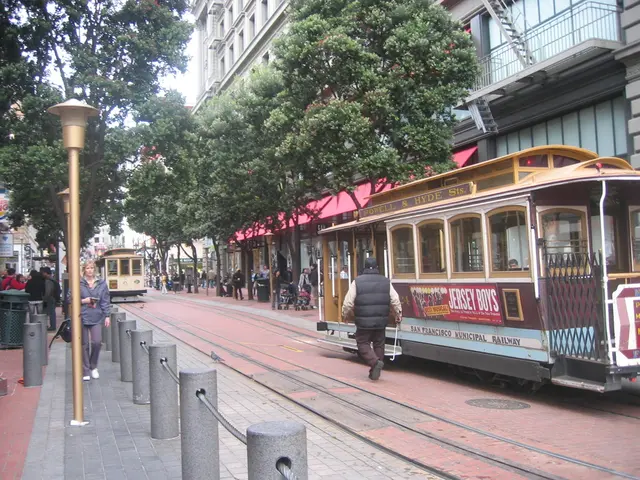Bye-Bye to Punch Cards - Bid Adieu to Punching Holes: Regional Transport Association Ditches Stamping Devices
Disruption of Devices - First Transport Association in North Rhine-Westphalia (NRW) deconstructs equipment - Transport Association in NRW Bids Farewell to Designers - NRW Transport Association's Departure of Designers
Warning: This content contains mature and complex subjects that may not be suitable for all readers.
The age of mechanical ticket punches in buses and trams is nearing its end in numerous areas, with Westfalentarif, one of the four transport associations in North Rhine-Westphalia (NRW), announcing the large-scale removal of these little stamping devices from public local transport. Yet, this shift is also visible in various other places.
Starting August 1st, Westfalentarif will no longer provide tickets from their regular range that require validation before the journey begins. From November 1st, the validators in buses, trains, and at train stations will be deactivated and eventually removed. Until this date, passengers can still use tickets with a "validator field." Following that, these tickets will no longer be valid.
VRR initially plans to enable cashless payment
In the Verkehrsverbund Rhein-Ruhr (VRR), the elimination of paper tickets and subsequent removal of validators is fundamentally planned, though not yet specifically scheduled or implemented, as a spokesperson for the largest of the four transport associations in NRW clarified. Consequently, it will still be possible to buy and validate paper tickets in the VRR.
Initially, the aim is to allow cashless payment in all vehicles in the VRR in addition to existing methods. The gradual transition is slated to be completed at all VRR transport companies by early 2027. Long-term, ticket sales in vehicles will be exclusively cashless.
In countries with established paperless ticketing systems, tickets can be paid directly with debit and credit cards, as well as mobile payment methods like Google Pay or Apple Pay, the VRR spokesperson explained. Proof of travel authorization remains unproblematic during inspections.
Rhein-Sieg has not yet transitioned
In the Verkehrsverbund Rhein-Sieg (VRS), tickets that still need to be validated continue to be sold, a spokesperson stated. The future strategy is currently being discussed in relation to the planned tariff reform between the VRS and the Aachener Verkehrsverbund AVV, which is set to be implemented next year.
A spokesperson for the Aachener Verkehrsverbund AVV remarked, "Long-term, we’re heading in that direction." In the Städteregion Aachen, the bus company Aseag no longer offers unvalidated tickets, does not install validators in new vehicles. However, the validators in the older vehicles of the Aachener bus company remain in place.
In the region of the Aachener Verkehrsverbund, WestVerkehr in the Heinsberg district and Rurtalbus in the Düren district still offer unvalidated tickets. The Zweckverband go.Rheinland also still provides validators at train stations.
Westfalentarif: Fewer Expenses and More Clarity
In the Verkehrsverbund Westfalentarif, tickets for travel by bus and train will only have validity from the time of purchase or with a fixed start date or time from August onwards. For occasional travelers, several options are available, including the Smartphone Tarif eezy.nrw, the TagesTicket24, and the single ticket without a validator field. Tickets can be purchased at ticket machines, customer centers, in buses and trains, in the online shop of the transport companies, and via app.
Westphalia Tariff hopes for cost savings due to the elimination of the complex maintenance of validators. Additionally, the "ticketing jungle" will be reduced, making it more transparent for passengers. In the transition area to neighboring transport associations, validators at train stations will remain in place. The multi-journey ticket and the single ticket with the so-called validator field will be discontinued in many places, except in Bocholt, Unna, and Paderborn.
Note: Statistics related to the decline in cash usage across Germany were provided, but since they do not directly contribute to the article's main point, they were omitted for brevity and clarity.
As Westfalentarif transitions towards a cashless system, they aim to reduce maintenance costs and offer more clarity to passengers.In this shift, vocational training may become increasingly important for employees in the finance sector, as they will need skills to manage digital payment systems effectively within the transport industry.








